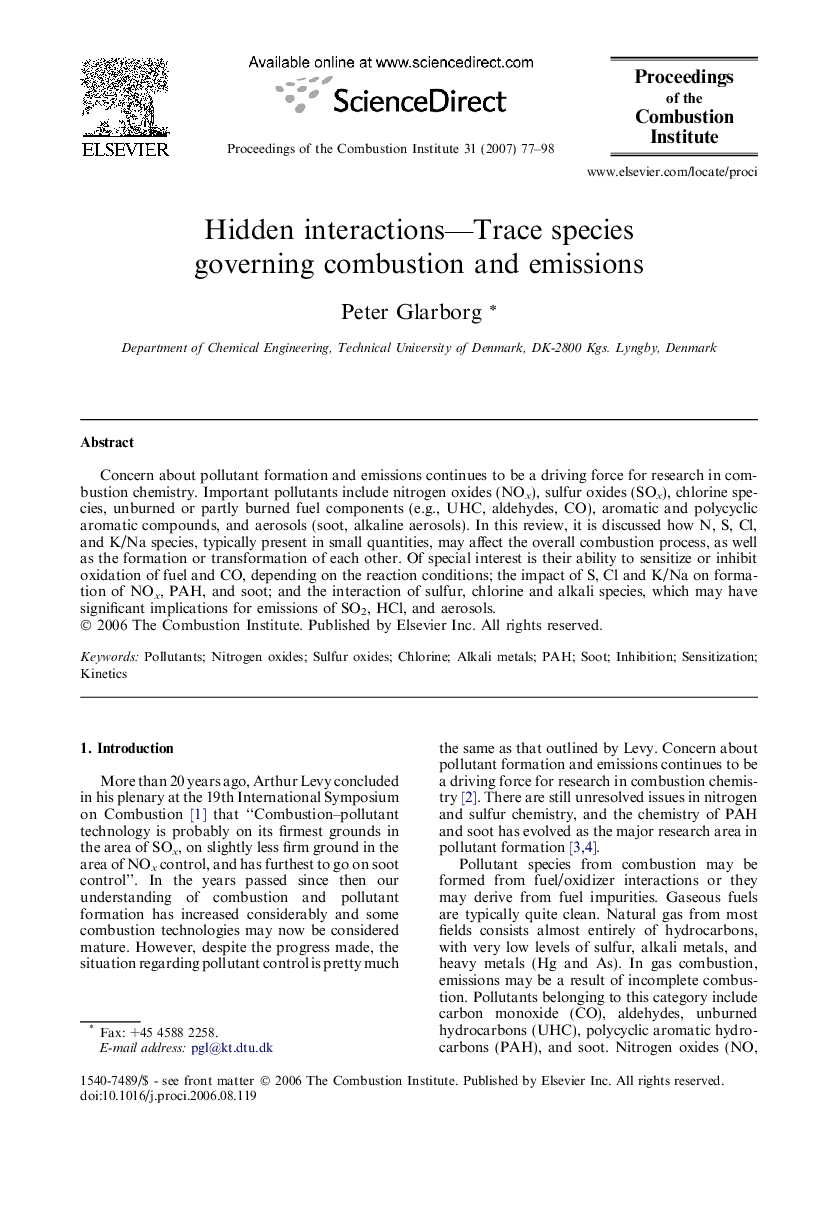| Article ID | Journal | Published Year | Pages | File Type |
|---|---|---|---|---|
| 240712 | Proceedings of the Combustion Institute | 2007 | 22 Pages |
Concern about pollutant formation and emissions continues to be a driving force for research in combustion chemistry. Important pollutants include nitrogen oxides (NOx), sulfur oxides (SOx), chlorine species, unburned or partly burned fuel components (e.g., UHC, aldehydes, CO), aromatic and polycyclic aromatic compounds, and aerosols (soot, alkaline aerosols). In this review, it is discussed how N, S, Cl, and K/Na species, typically present in small quantities, may affect the overall combustion process, as well as the formation or transformation of each other. Of special interest is their ability to sensitize or inhibit oxidation of fuel and CO, depending on the reaction conditions; the impact of S, Cl and K/Na on formation of NOx, PAH, and soot; and the interaction of sulfur, chlorine and alkali species, which may have significant implications for emissions of SO2, HCl, and aerosols.
